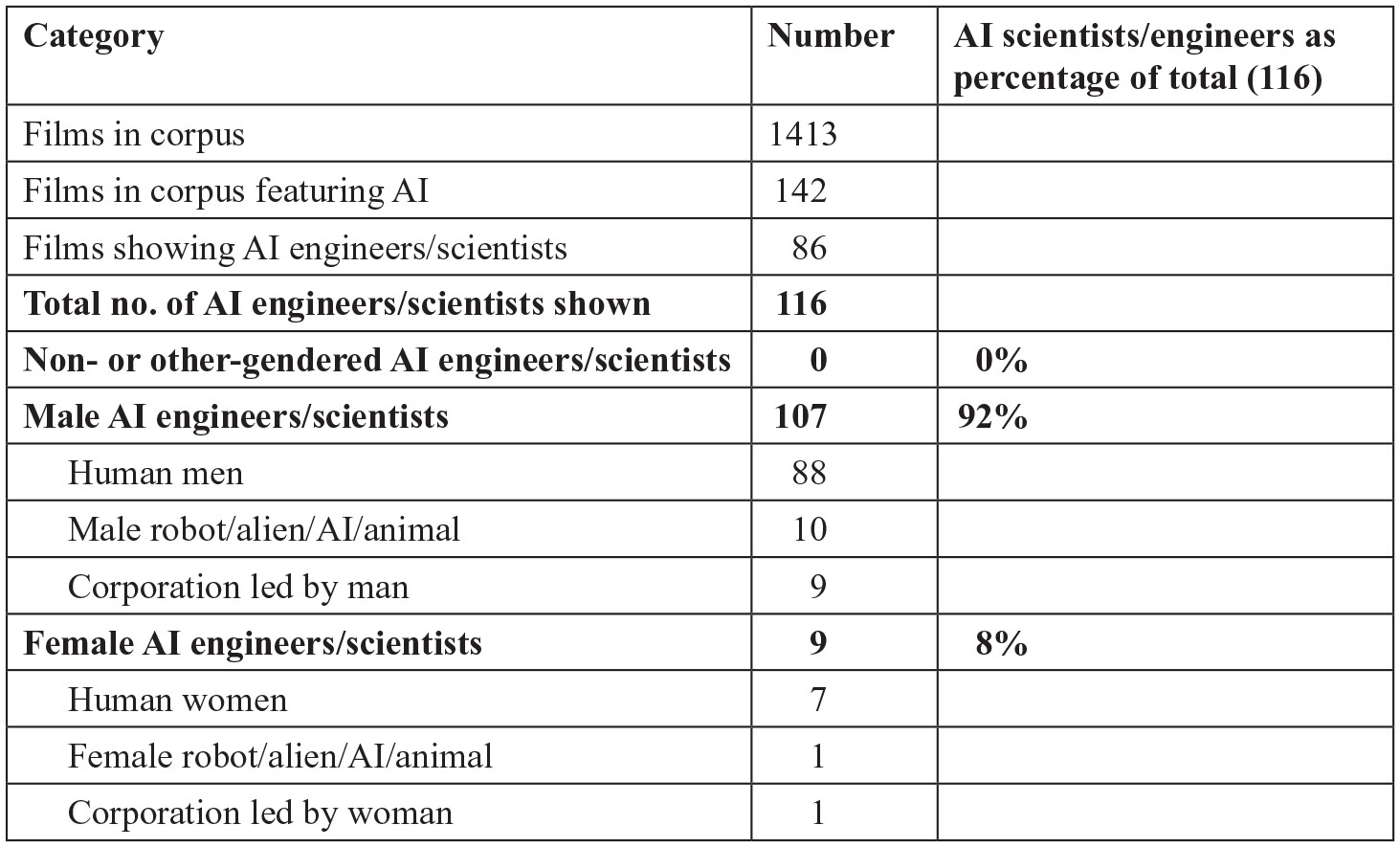When you think of 'mad scientist' you probably do think of a man, and the authors argue that is a symptom of deeper sexism; so AI, which is going to pick a spot in brute force style and converge on answers from there, will perpetuate it. And that is true, except the issue is well-known and easy to work around, even for today's limited unintelligent AI.
Yet depictions in film are one reason why few women go into AI, they believe. Without more women in movies building dangerous robots there is a high risk of gender bias seeping into algorithms that will write programs that can't separate blueberry muffins from dogs in the future.

They make their case after looking at 142 popular films (such as "Metropolis", "Austin Powers", "Iron Man") that had 'artificial intelligence' between 1920 and 2020 and identifying 116 characters in 86 movies they classed as “AI professionals.” Among those, only eight scientists/engineers and one CEO were women. Since the percentage of men in the current AI workforce is currently at 78 percent they correlate that difference to media influence. The confounder is that in 100 years of films nearly all depictions of social sciences, from anthropology to psychology, were men also and yet women dominate psychology and anthropology at the same level men dominate AI. Only in education, a classic progressive hierarchy where a male principal long controlled a staff of female teachers, have media depictions correlated to reality. If scientists and engineers were only 8 percent women in 100 years of film and that made the difference, women would not be ~40 percent of the STEM workforce, and yet they are.

In cultural papers, it is often the case that authors pick a conclusion and then find the data to match it. The problem here is it suggests women have no real agency. So Dana Scully in "The X-Files" can be linked to 60 percent of women in STEM and that overwhelmed decades of under-representation in movies, despite it not making any logical sense in a paper where representation in film is the driver. Are 50 percent of paranormal investigators now women due to the show's influence? No, those grifters are overwhelmingly men.
Using such a broad period of time makes it easy to blame any disparity in employment numbers on the same dataset - not enough trans people in AI now, it's due to film of the past. Not enough people of color, blame old movies. And for the lack of loner female mad scientists in the past they blame lack of female directors. Yet if there were more insane female scientists in movies of the past we'd blame such 'hysterical' imagery on too many male directors.
You know that old saying, when your only tool is a hammer every problem is a nail, and when gender representation is used to explain everything, it can't explain very much at all. If you stretch logic far enough, you can blame the Wachowskis having no big success since "The Matrix" on their being trans after that success and claiming people are biased against them due to it. Correlation is easy, we can correlate anything to anything, it is why so many miracle vegetable and scary chemical claims (Eat chocolate!Don't use Teflon frying pans!) get published by Harvard School of Public Health and the National Institute of Environmental Health Sciences.
Correlation is a valuable tool in sometimes pointing science in the right direction, but claiming that representation in media overwhelms personal desire - only in women - is not showing them the love they deserve.




Comments